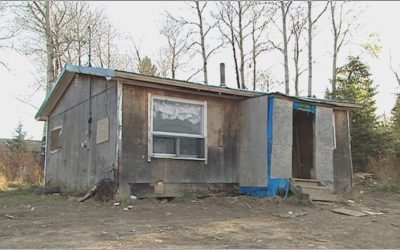Rental accommodation is not a public good.
Landlords are private property owners. They should not be made to rent at a price the government, on behalf of renters, thinks is reasonable. Indeed, they cannot be made to. Whenever and wherever governments have tried to regulate rents, they have created shortages in rental units that have put further upward pressure on rents.
Rent control leads to fewer apartments being built, which leads to greater demand for the ones available, which leads to higher rents (or massive government rent subsidies), but never to “fairer” rents.
Landlords rent out apartments, houses and basement suites to make money. Sure, many also enjoy interacting with their tenants.
They might prefer tinkering with a faulty dishwasher in one of their suites to working 9-to-5 at an office job, or get satisfaction from patching and painting the walls in advance of a new renter moving in.
But despite what personal joys they may take, most wouldn’t be landlords if there wasn’t at least a small profit in it.
So if we limit their ability to make money, many will get out of the rental business altogether.
There are a lot of reasons for our current rental crunch — not just the boom — none of which will be solved by government regulation of rents.
The principal reason is the narrowing of the gap between renting and owning.
With the boom in condo construction in the past 20 years and the lowering of inflation and interest, it is now nearly as cheap to buy as to rent. So as more people have chosen to buy, the market has followed suit, building more condos than apartments.
The disappearance of many tax write-offs for multi-unit residential buildings has lowered the supply, too.
Danielle Smith, the then director of the Alberta Property Rights Initiative, explained the math in the Calgary Herald last fall. “In the current market, a condo developer would pay $250 per square foot to build, sell for $400 per square foot, and profit $150,000 from a 1,000 square foot unit.
“If instead he were to rent this unit out and net $1,000 per month in rental income — after taxes, finance expenses, maintenance and management costs — it would take 12-and-a-half years” to net the same return.
Not hard to see why investing in rental property is far less appealing than developing condominiums and townhouses given similar tax treatment of both.
Comments by renters and letter writers in The Journal and elsewhere reveal, though, how many people misguidedly see rent as a social good, rather than a commodity.
One letter-to-the-editor writer here said controls were needed because some people choose to rent. They don’t want the stress of a mortgage, insurance, repairs, utilities and so on that go with home owning.
OK. But why, then, do landlords have an obligation to subsidize that choice?
That is what rent controls are — a subsidy extracted from landlords by government in favour of tenants.
Another renter, quoted elsewhere said, “They should institute rent control. I’ve been saving for a house and now can’t afford the mortgage payments because of the way things are.”
But why, suddenly, should it be your landlord’s obligation to mitigate the effects on you of the current hot housing market?
Back when all electricity in Alberta was pooled, those of us who lived in built-up areas of the province used to pay a monthly charge above and beyond the cost of our power to help keep the cost low in rural and remote areas.
Why? Did they have to add a little onto their monthly mortgage payments to compensate big-city Albertans for higher house prices? Of course not.
But somehow we get it in our heads from time to time that certain goods and services are not like the others. Rent and health care are two good examples. Because of moral or social attributes we ascribe to them, they can be freed from the laws of economics. We tell ourselves, for instance, we can regulate landlord behaviour to bring hope to those saving to buy a house without also distorting the rental market. Our good intentions are enough.
“I think they should put a stop to rent increases because a lot of people are having a hard time making ends meet,” said a radio interviewee.
Yeah, and I think “they” should put an end to foul-weather long weekends so we soccer parents don’t have to freeze our buns off on tournament sidelines.
But wishing can’t make it so.
Give new rental properties a property-tax holiday for five or 10 years.
Streamline zoning laws to permit more basement or “secondary” suites. Remove some of the myriad construction regulations on new apartments. There are plenty of ways to encourage a growth in the supply of units (and thereby lower rents), without resorting to rent controls.
But also remember who opened this can of worms. Not the Liberal opposition or the New Democrats or the Friends of Renticare. It was our own Premier Ed Stelmach, whose simplistic populism continually lands him in trouble.


